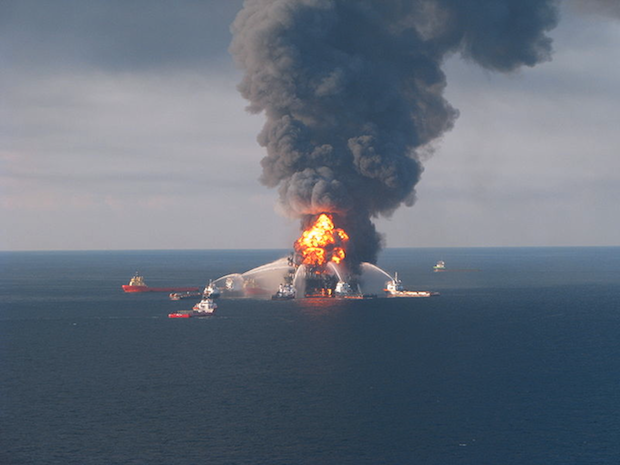Depending on a verdict of simple negligence or gross negligence, BP could be fined from $1,100 to $4,300 per barrel spilled. BP recently won a ruling that excludes 810,000 barrels of “collected” oil from the total calculation of penalties and fees. The ruling allowed BP to reduce the maximum fine by several billion dollars. Environmentalists say BP should “be on the hook for an additional $25 billion.”
On February 25, the New York Times reported that a settlement plan has been proposed by federal and state officials. The $16-billion plan would limit the taxable portion to $6 billion, allocate $9 billion to cover environmental damages and restoration, and set aside $1 billion for unanticipated environmental damages. But no settlement agreement has been reached, and opening statements indicate a lively trial ahead that will yet again draw global attention to the largest marine oil spill in history.
The Minerals Management Service (MMS) was the federal agency charged with regulating the offshore oil rig at the time of the explosion. It was the responsibility of the MMS to ensure the safety and environmental compliance of oil operations on the continental shelf as well as collect royalties from the industry. Federal regulators conducted inquiries into the agency and discovered officials had altered inspection reports, bypassed required environmental procedures before issuing drilling permits, and engaged in inappropriate or illegal activities. Top MMS officials stepped down in May 2010.
After the Deepwater Horizon disaster, the Obama administration reorganized the federal oil regulation agency in an effort to eliminate conflicts of interest. But according to a New York Times article in 2011, the agency still has flaws and lacks the technical expertise needed for rigorous oversight of offshore drilling. The blowout preventers and containment systems in use today have “not been tested in real-life conditions and, by the industry’s own estimate, could still allow hundreds of thousands of barrels of oil to spew before a runaway well could be capped.” Mr. Bromwich, who heads the Bureau of Ocean Energy Management, Regulation and Enforcement (BOEMRE) said the agency “still lacks the resources, personnel, training, technology, enforcement tools, regulations and legislation it needs to do its job properly.”
Will the BOEMRE provide the kind or rigorous oversight necessary to conduct responsible offshore drilling? Will the parties involved in the trial reach a settlement or will the parties at fault finally surface? How will the trial shape oil spill and response policy? Will the people of the Minerals Management Service be held accountable for the lack of oversight?
We’ll be watching to see how citizens, industry, environmentalists, and government authorities cooperate to fix these problems.
Carissa Ries
carissar@banksinfo.com


